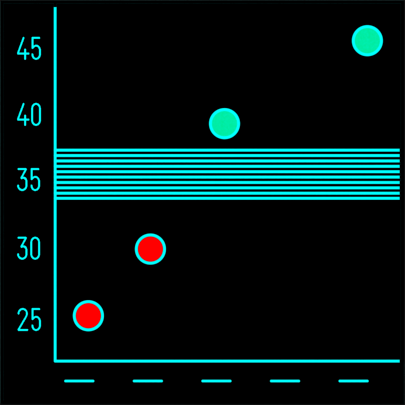Optimize health
The Sn™900 CheckUp™ offers a clear view of your health status and provides valuable insights that guide and support you in making informed decisions about your health.
Identify health risks
The biomarkers frame combinations included when investigating common conditions and symptoms.
Create a health profile
CheckUp™ provides us with the basis to produce your unique health profile. It gives an overall picture of your health status and helps you to make well-informed decisions.
Follow up and compare
Track your progress over time and compare results to see how your health develops. With CheckUp™, you get a better a comprehensive overview of your health.
How does it work?
- Order Sn™900 CheckUp™
Add any
- Add Sn™900 CheckUp™ to your cart. We will create a referral containing all your tests for sampling sites and laboratories after payment. Confirmation and receipt are sent via email. An email is sent out to activate an account if you do not already have one with us. This is required for us to be able to present test results securely behind BankID.
- Find a Sampling Site
We have affiliated sampling sites with drop-in services throughout Sweden. Find your nearest sampling site and their opening hours here.
- Test Results and Follow-Up
The test results will be displayed in your journal within 1-5 working days and reviewed by a licensed doctor.
Good to know before taking the test
Important to consider before the blood test
- Take the test on an empty stomach in the morning - you should not eat nor drink anything for 10 hours before the test. (Exceptions are water and black coffee/tea without sugar or milk.)
- The test should be done in the morning before 10 am because some biomarkers are sensitive to the circadian rhythm.
- Preferably rest for 15 minutes in the waiting room before the sampling for more accurate results.
- Do not take any medications before the blood test.
- Bring valid identification.
Where can I find locations for taking the test?
You can simply ask the chatbot, otherwise click here.
-
 Laboratory Medical Analysis
Laboratory Medical Analysis
-
 Accredited by SWEDAC
Accredited by SWEDAC
-
 SS-EN ISO 15189
SS-EN ISO 15189
What sets Sn™900 CheckUp™ apart from other tests?
The Sn™ Checkup™, developed by a team of experts, aims to identify the most common health concerns and track your personal health status. Unlike other tests, CheckUp™ includes a broad hormonal spectrum, the most specific biomarkers for early detection of cardiovascular disease risk and an analysis that tells you what is actually going on in your body.
What happens after I order Sn™900 CheckUp™?
After ordering, you will receive an email with an activation link that you click to activate your profile. You will also have the option to fill in a health form which will allow you to receive an even more personalized analysis. Here you will also select the location for your blood test. Once the order is confirmed, you can easily go to your chosen location and have your blood samples taken.
Where can I find your locations for taking my test?
To see all clinic locations: click here
For how long is my order valid?
Your referral to take the test is valid for 3 months from the day you order your test.
Please note that after this period, the referral will no longer be open for activation and will thereby become invalid for conducting the test.
Where can I see my test results?
To view your test results, log into your Sn™ Health Dashboard here.
What is the Sn™ Health Dashboard?
The Sn™ Health Dashboard serves as your personalized dashboard, providing a comprehensive analysis of your body, its functioning, and its requirements. It offers detailed explanations and insights regarding the significance of your biomarker levels, their implications for your health, and potential actions you can take to enhance or preserve your well-being.
How long does it take to receive my test results?
You can expect to receive your test results within 4-5 days. During this time, a doctor carefully analyzes your results, and you will be able to view both your results and the doctor's comments in the Sn™ Health Dashboard.
How can I access my previous test results?
You can easily access your previous test results through the Sn™ Health Dashboard. All your past test results are saved and available for your reference.
Who has access to my results?
At Supernormal™, we prioritize the confidentiality and security of your data. Your personal information is handled with the utmost care. We have stringent measures in place to safeguard your privacy. We adhere to the same laws and regulations regarding confidentiality as primary care centers and hospitals. You also have the option to share your results with another healthcare provider by printing or saving them from your Sn™ Health Dashboard.
How do I know my results are safe and private?
Supernormal™ health dashboard ensures that your data is handled with the utmost care to maintain privacy and security. Confidentiality is prioritized, and measures are in place to protect your personal information.
Does Sn™900 CheckUp™ test for testosterone?
Because the turnover and function of testosterone itself are complex, the Sn™ 900 CheckUp™ measures five different testosterone-related markers, which taken together provide a more complete understanding of how testosterone works in your body.













